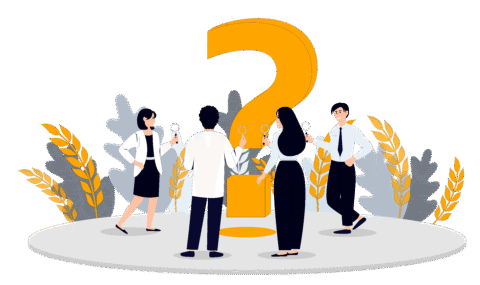
FAQs
TURN YOUR WOUNDS INTO WISDOM

Kenntnis Prüfung (KP)
When does a Doctor/Dentist need a license to practice medicine/work permit in Germany?
A recognition process is mandatory for regulated professions in Germany. The profession of a doctor and dentist is regulated by federal law. If you have a professional qualification in human medicine/dentistry/pharmacy from a non-EU country and intend to work as a doctor/dentist/pharmacist in Germany, you must apply for a license to practice medicine. This unrestricted professional license is called “Approbation”; the restricted professional license is called “Professional Permit”.
How is foreign educational qualification equalized in Germany?
The competent German government departments examine academic qualifications (Certificate of completion of university medical education as well as license to practice the occupation in the country of origin or study). If there are differences between the foreign qualification & the German qualification, an equalization is attempted. The difference is based on the applicant’s study curriculum and clinical experience and if the study curriculum and medical practical experience is not sufficient or equals the difference, then the applicant must take a medical knowledge test or aptitude test known as Kenntnisprüfung (KP).
What is a license to practice medicine/Approbation?
Approbation” is the permanent license to practice medicine in Germany. The word has a Latin origin (approbation) that means permission. It is a government permit to practice the medical profession responsibly, independently & permanently in Germany under the title “Doctor”. This permit is valid throughout Germany for an unlimited period. This is received after passing the Kenntnisprüfung and makes you eligible to start your Medical Training in Germany.
You will receive “Approbation” if your foreign qualification as a doctor/dentist/pharmacist is equivalent to your German education and if you meet all other requirement.
What do you mean by medical knowledge test/ Kenntnisprufung (KP)?
When it is determined through disclosure in the relevant government departments that there exists a substantial difference between the qualification issued in a foreign country and the qualification issued in Germany, which cannot be equated with medical experience the applicant must undergo a medical knowledge test known as Kenntnisprufung to demonstrate the medical skills and capabilities required to work in Germany.
The medical knowledge test contains questions in internal materials, surgery, and supplementary sciences such as emergency, radiology, pharmacology, clinical radiation protection, and legal questions in the medical profession in Germany. The competent government departments may also specify a specific subject that represents essential differences between the medical education system in the country of origin and the medical education system in Germany. The clinical knowledge test is an oral practical test with a presentation of a satisfactory condition and its duration ranges from 60 to 90 minutes.
Applicants can also opt-out of the comparison process and ask for Kenntnisprüfung directly through Gutachten but the results of this are not very encouraging.
How many times it is allowed to retake the medical knowledge test/ Kenntnisprufung (KP)?
Medical knowledge retest is permitted a maximum of two times, so a total of 3 attempts are allowed.
Is medical training from a third country (any country other than the European Economic Area/Switzerland) directly recognized in Germany?
No! Medical training from a third country is not directly recognized in Germany, a medico needs to go through an equalization process to establish its recognition in Germany.
Medical diplomas obtained outside of the European Economic Area/Switzerland shall be compared to medical diplomas obtained in Germany by the competent registration body (Approbationsbehörde). The applicant is granted full registration if the competent registration authority confirms the equivalence of the foreign diploma or concludes that potential differences in basic medical training can be compensated for by relevant work experience and if all other requirements namely knowledge of the German language, health requirements, and no criminal record, etc. are met.
If the competent registration authority determines that there are significant differences between the applicant’s country of training and Germany’s basic medical training, it may require the applicant to take a knowledge test, if the differences in basic medical training cannot be compensated by relevant professional experience or other recognized skills and competences.
Recognition
Which institution oversees recognizing foreign medical degrees in Germany?
All foreign-trained physicians, doctors and dentists who want to work in Germany, must contact the competent Federal State registration authority in which they wish to work to have their medical diplomas recognized (basic medical training). The recognition of the specialist qualification is only possible after the recognition of the basic medical training has taken place. The acknowledgment of specialized qualifications is the responsibility of the State Chambers of Physicians.
What are the documents to be submitted for the recognition?
The competent registration body informs you of the documentation that must be presented for your medical diploma to be recognized. The competent State Chamber of Physicians informs you of the documentation that must be provided for your medical specialist diploma to be recognized. Mostly they are your academic records, experience letters, recommendation letters, proficiency in the German language, etc.
What linguistic abilities are required for full registration (Approbation)?
A foreign-trained physician should have achieved level B2 of the Common European Framework of Reference for Languages (CEFR) in general German language. Furthermore, they must pass a specific medical German language exam (Level C1 of CEFR). Please keep in mind that the requirements are subject to change at any time. Therefore, the competent registration authority should be contacted before any decision is taken.
Is it necessary to have a job offer as a doctor or to live in Germany before applying for limited registration (Berufserlaubnis) or full registration (Approbation)?
Foreign-trained physicians are frequently asked for job offers and other documentation to convincingly indicate their intention to work inside the authority’s jurisdiction.
Without completing the German language requirements, can a doctor request an evaluation of his basic medical training?
A doctor can always request an evaluation of his basic medical training without completing the necessary German language requirements but he or she will only be awarded temporary registration or full registration (Approbation) if he or she meets the German language requirements.
Can a doctor request an evaluation of his basic medical training even if he hasn't completed the German language requirements?
It is not permissible to apply for a temporary or permanent professional practice permit except in the state in which you have a work contract. The doctor must decide the state in which he intends to practice the medical profession before applying for a license.
Is citizenship important in obtaining full registration?
Since the implementation of the so-called recognition law on April 1, 2012, citizenship has no bearing on complete registration in Germany.
If a student has completed his medical studies in another country but has not completed the mandatory practical phase that is part of his/her basic medical training (e.g., Internship). Is it possible for them to work in Germany?
If their basic medical training in the home country or the country of study comprises basic medical studies followed by the required practical phase and a permanent license, it is strongly advised that they come to Germany only after completing the practical part with a permanent license. Otherwise, their basic medical training with no practical phase and no permanent license will be deemed insufficient by the competent registration body. Please keep in mind that the idea of integrating into the German medical system with incomplete medical education is quite challenging and is not suggested.


Approbation
Is it necessary for a doctor to work with limited registration to take the knowledge test?
The purpose of a limited registration is to prepare a doctor/dentist for the knowledge test through work. It is however not a compulsory requirement for admission to the knowledge test.
How much does the knowledge test cost?
The cost of the knowledge test varies depending on which German state you live in. On average, the cost of a knowledge test is around € 1,000 in most states. In Schleswig-Holstein, you must pay € 350, while in Hesse or Rhineland-Palatinate, you must pay € 1,100. Please keep in mind that prices are subject to change.
Which agency oversees postgraduate medical education?
The State Chambers of Physicians is responsible for all aspects relating to postgraduate medical education. Only the postgraduate medical training regulations established by the State Chamber of Physicians where the physician is a member are legally binding.
Is it necessary for a doctor to be a member of a state chamber of physicians?
Definitely! In Germany, all physicians must be members of the applicable State Chamber of Physicians. This is true for both physicians in postgraduate medical training and specialists.
What are the earning potentials for physicians and specialists?
Germany’s physician trade union has reached collective agreements with the various hospital operators. Physicians in communal hospitals will get a monthly gross wage ranging from 4,694.75 € (initial year of professional experience) to 6,034.78 € (Sixth year of professional experience) starting in January 2021. Specialists’ monthly gross salaries range from 6,196.32 € (first year) to 7,957.64 € (from the 13th year onwards). These pay rates are based on a 40-hour workweek. Extra pay is given for on-call services and overtime.
How long does it take to process the application for Approbation?
The processing time depends on the choice of the state medical council you make and when can you fulfill all the required documents. The examination of the essential differences (so-called equivalence test) should generally be completed within six months after all the necessary documents have been submitted in the correct format. However, the processing time can be considerably longer if an expert is called in. You can shorten the processing time if you forego an assessment and agree to take part in the knowledge test. A work permit will not be issued until the equivalence of your qualification has been checked.
General Definitions
What is Defizitbescheid?
When a doctor applies for Approbation (Permanent License) comparison is done between his or her medical studies with German medical studies.
If a significant shortage or deficit (Deficit in German) is found in their studies, the doctor will be asked to take a knowledge test known as Kenntnisprüfung.
Defizitbescheid is the document explaining this deficit. It is usually the result of a comparison process. (Gutachterliches Verfahren). It is mandatory to submit a Defizitbescheid along with your application for a visa.
What is the equivalency examination by Gutachten?
Gutachten means assessment. It is an examination of academic qualifications papers in the relevant government departments to determine the basic differences between the system and content of University Medical Education in the applicant’s country of study & university medical education in Germany.
The original application of the applicant is reviewed for qualification and scientific content and if found equivalent to a German qualification permanent license, approbation is granted without any Medical knowledge test/ Kenntnisprufung provided the doctor can prove the required German language skills. An external appraiser or the appraisal office for health professions at the Central Office for Foreign education is generally consulted to check equivalence.
What is Fachsprachenprüfung (Specific Language Test)?
C1 Medizin focuses on Doctor-Patient and Doctor-Doctor communication. C1 Medizin level is tested by an exam, called Fachsprachenprüfung. It is just a verbal viva Specific Language qualifying exam conducted by individual state medical councils. Upon qualification, a doctor is granted a temporary license called Berufserlaubnis.
What is Berufserlaubnis?
It is a temporary permit or license to practice the medical/dental profession and is issued upon request for those who have completed their medical/dental university study.
It could be a temporary profession permit limited to a specific work and place and is valid for practicing medicine in the specified state only. The temporary permit can be renewed for a maximum period of two years.
A doctor will receive a salary and benefits, but this period will not be counted for post-graduation. Within this period of 2 years, a doctor needs to complete the procedure of Approbation. Most the states require a job offer (Stellenzusage) from a German hospital to apply for Berufserlaubnis.
What is a work permit?
The professional permit or a work permit is limited to a maximum of two years. You must take the knowledge test within these two years. The aim is to obtain a license to practice medicine. The professional license is limited to a non-self-employed and non-managerial activity. You work under the supervision of a licensed doctor/dentist/pharmacist. According to advanced training regulations of a State Medical Association, however, a professional license does not entitle you to advanced training. Completed medical training abroad is sufficient for a professional permit. If a knowledge test is necessary for you, the competent authority can issue you with a work permit. Don’t be a confusing work permit or professional permit; professional license and temporary licenses are all one and the same.


Berufserlaubnis and Fachsprache Prüfung Exam (FSP)
When a doctor works with a restricted registration (Berufserlaubnis), can this time be applied to postgraduate studies?
Limited registration will be allowed to physicians whose basic medical training differs significantly from that of German physicians, or in circumstances where the fundamental medical training is currently being assessed. A doctor can only begin postgraduate training in Germany after obtaining full registration in the country.
Known as “Approbation”.
How will I be compensated if I work with limited registration (Berufserlaubnis)?
A physician is compensated with a salary while working on limited registration. The doctor’s association in Germany believes that because the physician is also medically active, he or she is entitled to be paid under collective agreements.
What is the maximum time a doctor can be awarded a limited registration (Berufserlaubnis)?
A limited registration can only be granted for a maximum period of 2 years. Only in exceptional circumstances or for population medical care can this period be extended.
What linguistic abilities are required for limited registration (Berufserlaubnis)?
In most German states, whether you apply for full or limited registration, your language abilities must be the same. A doctor/dentist should be certified to the B2 level of the German language for limited registration.
Please keep in mind that the requirements may change at any time. Furthermore, under exceptional circumstances, some registration authorities may accept exceptions to the requirement. As a result, the appropriate registration authority should be contacted ahead of time.
How much does the medical German language exam C1 (FSP) cost?
The price of a medical German language exam varies depending on the provider. The medical German language exam of the State Chamber of Physicians Nord Rheine costs € 300 and in Hessen, it costs € 650. On average, the cost is around € 500 in most of the states in Germany. Please contact the relevant provider before making a choice, as costs are subject to change at any time.
What is the format of the medical language exam/ Fachsprachenprüfung exam (FSP)?
Doctors who come to Germany from another country and want to work as doctors/dentist must demonstrate that they have the necessary understanding of the German language when applying for a license to practice medicine (Approbation). This necessitates taking the technical language exam known as Fachsprachenprüfung (FSP).
The technical language examination is designed practically and takes place in front of an examination board consisting of three members, at least two of whom are licensed, doctors. In the exam, knowledge of the specialist language in a job-specific context based on language level C1 is expected.
The course of the procedure
1st step: Registration
When registering for the specialist language test at the State Medical Association, a fee must be paid. Requirements for the application are
Certificate of general German skills (at least at language level B2)
An updated résumé
The confirmation of receipt of your application for a license to practice medicine at the State Administration Office
Copy of an identification document, like a Passport, etc.
Copy of the visa for non-EU citizens (except the visa-free countries)
Registration is always in electronic form (as a PDF file).
2nd step: Examination date
Once the receipt of the documents is confirmed by the State Medical Association an invitation to the exam will be sent to you by e-mail. If the exam is not passed, the exam can be repeated as often as required. In this case, too, you must register with the State Medical Association. The administration fee must be paid again each time.
3rd step: The exam procedure
The medical language exam is close to daily medical practice and is conducted in front of a committee of examiners where dialogue situations are simulated. The medical language exam records data mainly from the daily medical reality and practices. The exam consists of three parts each with a duration of about 20 minutes.
Examination process
1st Part: Doctor-Patient conversation (Doctor’s patient dialogue in the context of the medical history taking or examination)
An anamnesis interview is conducted with a simulated patient played by a medical member of the examination board. Suspected diagnoses are formulated and explained here. Suggestions for further diagnosis and therapy are made and the intended measures are explained to the patient. In addition to the reliable understanding of the patient’s information, this part of the examination focuses on the language that is understandable for the patient, using as few foreign words and medical terminology as possible. Written records (notes) may be made.
2nd Part: Written report (Doctor’s dialogue with the fellow doctor in the context of handing over sick cases or daily transit)
The examination candidate compiles the information obtained in the doctor-patient conversation in a doctor’s report. This should be done in full sentences. The notes previously made during the doctor-patient conversation may be used. A medical dictionary is on display and may be used. The documentation takes place in a separate room.
3rd Part: Doctor-Doctor communication (Written documentation of the patient’s condition, for example, writing a medical report)
In the third part of the examination, the information obtained in the doctor-patient conversation is passed on to a medical member of the examination board. The information should be presented concisely – with competent use of medical vocabulary. Then let yourself get involved in the further discussion with the examiner. Finally, a shortlist of common medical terms is handed out, where the respective German-language names must be entered. The members of the examination board assess the examination according to a uniform, structured scheme and inform you of the result immediately after the examination.
How many attempts are permissible for Medical Language Exam/ Fachsprachenprüfung exam (FSP)?
The Medical Language Exam/ Fachsprachenprüfung exam (FSP) can be repeated an infinite number of times.
What is job shadowing, an internship, or regular employment?
Job shadowing: The doctor is usually given a job shadowing contract. Hospitals employ foreign-trained doctors without specialist medical recognition, mostly from third-party countries, within the framework of a several-month “job shadowing” or “internship” (the name varies). The doctor has a contract for the relevant period but does not receive compensation. Officially, he/she only accompanies everyday clinical practice, but – at least according to the contract – is not medically active. According to this, shadowing is a “purely observational activity by yet unapproved participants, who only perform some medical activities in the interest of learning and is usually for a few days or weeks. Shadowing is for acquiring, deepening, and improving knowledge and skills. Only accompanying and observing are permitted. No compensation claim is possible, not even on the minimum wage pursuant.
Internship: Doctors trained in third-party countries do an internship during the period in which they are waiting to take their assessment test and/or language test of at least three months’ duration. An intern is “anyone who… undergoes a certain occupational activity for a limited period to acquire practical knowledge and experience to prepare for professional activity”. Interns are subject to the employer’s right of action. Learning the necessary professional skills, knowledge, capabilities, and experience, and not the performance of work, is the priority. A minimum wage is generally applied. However, there must be a limited license to practice medicine (Berufserlaubnis) at the least.
Paid employment: In all cases where there is neither shadowing nor internship, an employment relationship with the corresponding legal consequences must be given in the affirmative.
STILL HAVE QUESTIONS?

